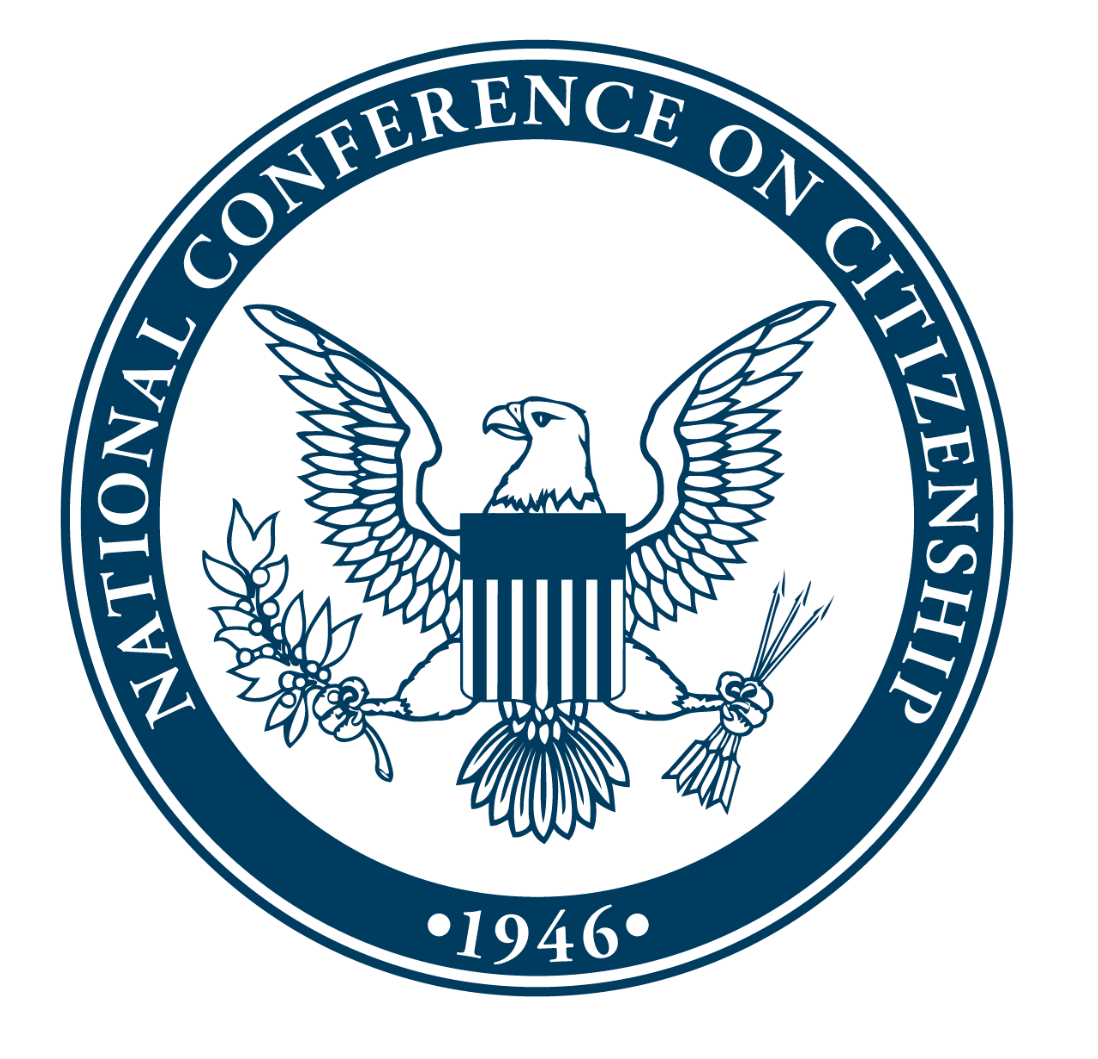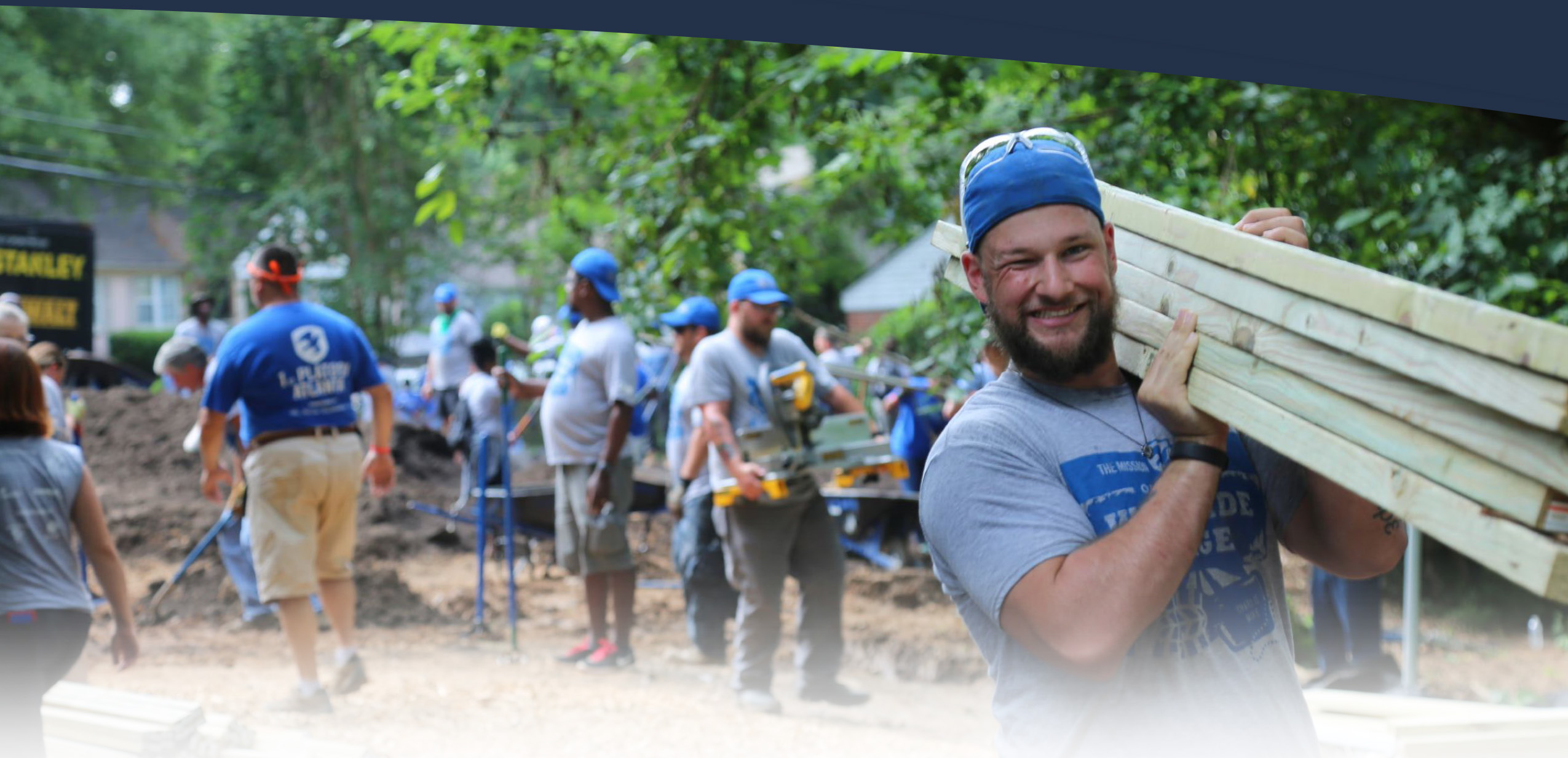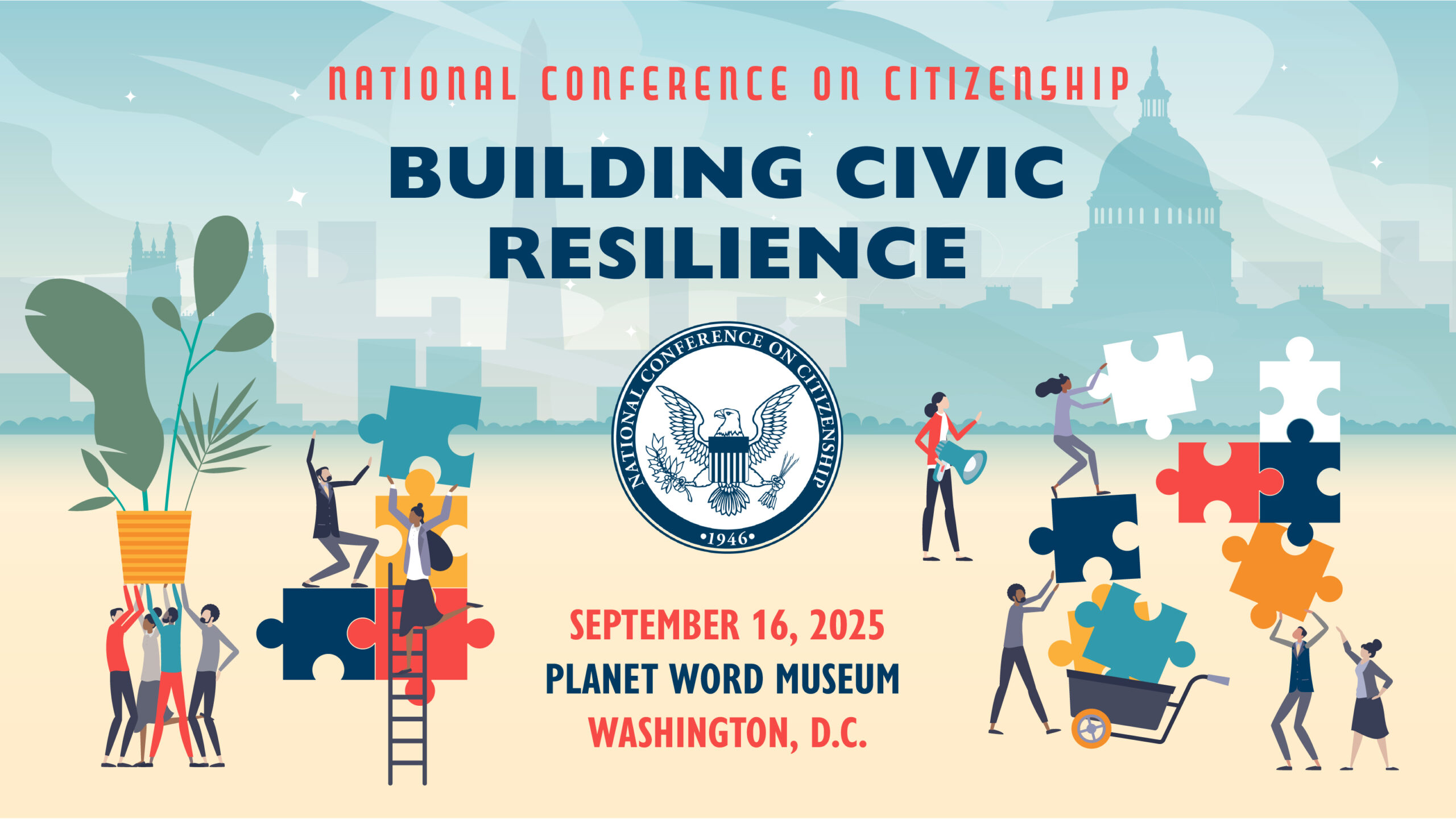In partnership with North Carolina Campus Engagement and leading North Carolina education organizations, the National Conference on Citizenship is pleased to release the 2024 North Carolina Civic Health Index – the fourth-ever civic health analysis in the state.
Download the 2024 North Carolina Civic Health Index
It is the intention of the partners producing this 2024 NCCHI that the data analysis and recommendations included in the report will help North Carolina set priorities, leverage best practices, and continue asking the difficult questions to fulfill its civic potential.
Where NC is Strongest Relative to Other States and the US:
Personal relationships with family and friends: North Carolinians do indeed interact with family and friends. A full 80.9% of respondents reported “frequently” hearing from or spending time with family and friends (compared with the national average of 79.3%), giving the state a ranking of 27th of 51 (50 states plus the District of Columbia).
Community relationships: NC ranks 19th of 51 in terms of percentage of respondents who reported that they “frequently” talk with or spend time with neighbors. This 28.8% of North Carolinians is greater than the national average of 26.9%.
Collaboration with neighbors: When it comes to doing favors for neighbors, NC once again ranks 19th of 51. 10.9% of North Carolinians reported “frequently” doing favors for neighbors, compared to the national average of 10.0%; adding in those who reported “infrequently” (sometimes) doing favors for neighbors brings the total to almost 50%.
Participation in groups: Although ranking 31st of 51 nationally for reported participation in any type of group, more respondents in NC (24.8%) reported doing so than the national average (23.8%).
Where NC has Mixed Results Relative to Other States and the US:
Volunteering: Just over 1 in 5 respondents (22.8%) reported that, “yes,” they volunteered in the last year (compared to 23.2% nationally), generating a 34th of 51 ranking for NC. Among those “yes” respondents, 24.9% indicated that they “frequently” volunteer, compared to the national average of 20.6%, giving NC a ranking of 6th of 51 for “frequent” volunteering (among those who volunteer).
Donations to political or to charitable or religious organizations: North Carolina is below the national average (6.9% NC compared to 9.4% US) and ranked 42nd of 51 in donations of $25 or more to political organizations. NC is closer to the national average (47.6% NC compared to 48.1% US) but only 35th of 51 in reported donations of $25 or more to charitable or religious organizations.
Voting: Using data from the US Census Bureau’s Current Population Survey (CPS) 2022 November Voting and Registration Supplement, NC comes in at 45th of 51 with 45.7% of respondents reporting having voted in the November 8, 2022 election. .
Where NC Can Improve Relative to Other States and the US:
Discussing political, societal, or local issues with others or online: Only 34.5% of respondents indicated “frequently” discussing political, societal, or local issues with family and friends (compared to the national average of 35.1%, ranking NC 34th of 51). Only 7.6% reported talking with neighbors about political, societal, or local issues (compared to the national average of 7.9%, ranking NC 31st of 51).
News consumption: NC is below the national average and is 45th of 51 when it comes to reading, watching, or listening to news or information related to political, societal, or local issues. Fewer NC residents than the national average reported “frequently” consuming such news or information (63.4% NC compared to 67.6% US), and more NC residents than the national average responded that they “never” do so (18.4% NC compared to 16.6% US).
Voter registration: NC ranks 51st of 51 in voter registration, at 60.8% of respondents (compared with the national average of 69.1%). When we examine data from the NC State Board of Elections reporting actual voter registration for the 2022 election, the picture is again better than reported by survey respondents, with 69.7% of those eligible being registered to vote.
Participation in local politics: When it comes to attending public meetings or engaging with local public officials, NC ranks 47th and 50th out of 51, respectively.
PRIMARY AUTHORS
Leslie Garvin, MSW, Executive Director of North Carolina Campus Engagement
Patti H. Clayton, PhD, Community-Campus Engagement Consultant and Practitioner- Scholar-in-Residence of North Carolina Campus Engagement
Christopher A. Cooper, PhD, Robert Lee Madison Distinguished Professor and Director of the Haire Institute for Public Policy Institute at Western Carolina University.
Amy Farrell, BA, Executive Director at GenerationNation
Kevin Marinelli, PhD, Executive Director of the Program for Public Discourse and Teaching Associate Professor in the Department of Communication at UNC-Chapel Hill
Kylie R. J. Seltzer, PhD, Zietlow Postdoctoral Fellow with Carolina Public Humanities at UNC-Chapel Hill
CONTRIBUTORS
Jeff Coates, Research and Evaluation Director, National Conference on Citizenship
Cameron Blossom, Communications Director, National Conference on Citizenship
PARTNERS
The 2024 NC CHI was produced in partnership with NCoC and a group of education-based entities in North Carolina. Partners provided financial, human, and intellectual resources.
North Carolina Campus Engagement is a collaborative network of colleges and universities committed to civic and social responsibility, to partnering with communities for positive change, and to strengthening democracy.
GenerationNation develops a new generation of civic leaders by working with North Carolina K-12 students to help them learn first-hand how their governments and communities work; understand and discuss important civic issues; know how to find and use good sources of news and civic information; and build knowledge, experience, and social capital for civic leadership now and into the future.
Program for Public Discourse at UNC-Chapel Hill builds the capacity of UNC students for debate and deliberation, enabling them to be better citizens, civic leaders, and stewards of our democracy.
Phil and Connie Haire Institute for Public Policy at Western Carolina University aims to empower the Western North Carolina region to effectively manage real policy problems by mobilizing students, community leaders, faculty, and citizens to discuss and develop viable policy options to create more effective policies.
Duke Civic Engagement strengthens, connects, and amplifies the various ways students, faculty, and staff work to make a difference in the civic life of our communities. DCE supports Duke University’s collaborations with communities on pressing social challenges.
Carolina Public Humanities at UNC-Chapel Hill serves North Carolina by connecting UNC-Chapel Hill’s faculty and resources with communities throughout the state. It uses the humanities to spark curiosity, facilitate dialogue, and generate ideas in the hopes of building stronger democratic societies and a more humane world.”



